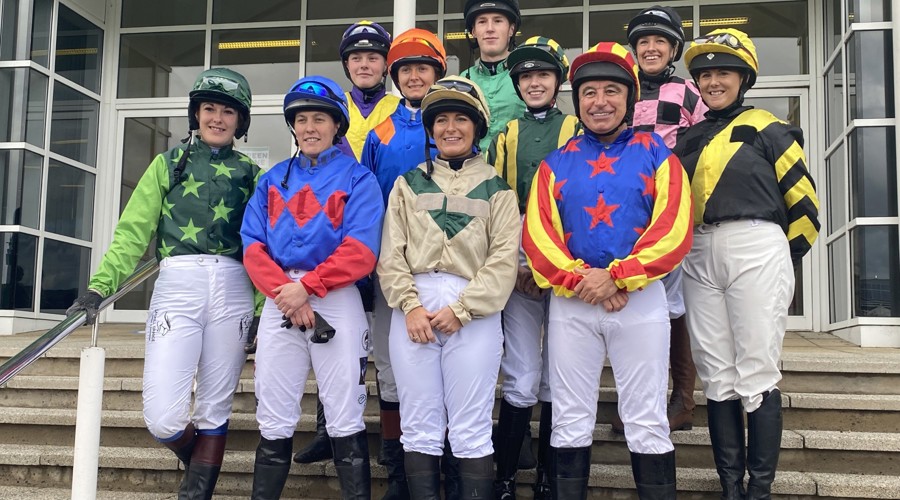If you feel you have the drive, commitment and ability to take part in one of our charity races in 2024 complete this form.
This is an amazing lifetime opportunity to race at either Wetherby or Newbury. But unfortunately for our riders, it is not as simple as turning up. Unlicensed riders without previous recent race riding experience must attend an assessment day at the British Racing School or the National Horseracing College and meet a set of standards as part of a Charity Race Assessment.
Here we examine the five essential requirements they must meet to be eligible to race.
1. Weigh in
Professional jockeys must meet strict weight restrictions to be able to ride, having to adhere to a minimum riding weight for a particular race or face disqualification.
Our riders, on the other hand, must not exceed a maximum weight (to be agreed prior to the race), including the necessary kit. For some, this might mean months of preparation to make sure they come in underweight, otherwise they risk falling at the first hurdle.
2. Fitness
Despite having to be under a certain weight, jockeys must be able to control a fast moving horse. Professional jockeys are athletes so need to be extremely fit and healthy.
Our jockeys are no different; they must be able to demonstrate that they have the necessary strength and endurance to control the horse over the course of the race. As such, they must all complete a gruelling fitness assessment, being expected to meet the minimum requirement for a Category A Amateur assessment.
There are a variety of tests, including cardiovascular and strength exercises, with element marked to give an overall percentage of fitness. There is a focus on the upper and lower body, core strength, and it even includes the Watt Bike test…
Riders are required to exceed 60% overall in the assessment. Unfortunately any performance below this is not satisfactory.
3. Tack up
Clearly to be a jockey you must be a very good rider with good horsemanship skills. But it's important to be able to appropriately tack up your racehorse ready for exercise.
Our jockeys will be not only be assessed on their ability to tack up their horse as required by the assessor, but they must do so within a realistic time frame.
4. Warm up and control
We all make sure we warm up before exercise, why would your horse be any different? Not only do you need to be physically ready for the race, but so does your horse. Like you, not warming up correctly makes your horse more prone to injury.
Our jockeys are required to demonstrate their ability to warm up a racehorse appropriately, all while demonstrating control at walk and trot in an open area.
5. Riding assessment
Finally, the riding assessment. Our jockeys may be avid riders, but handling a thoroughbred racehorse can be a challenge, it’s quite different to your average hack out.
Jockeys must have the ability to gallop at least six furlongs at one time, and critically, they must be able to demonstrate that they are able to monitor pace and control a racehorse at canter according to the assessor’s instruction.
It may be the case that a rider is asked to ride two different racehorses during an assessment.

